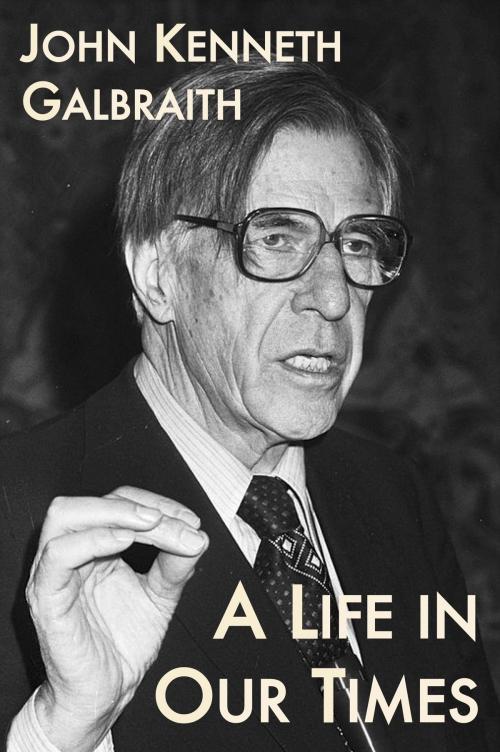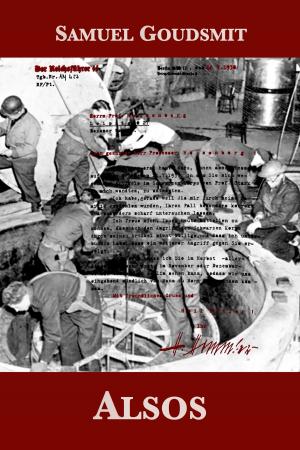| Author: | John Kenneth Galbraith | ISBN: | 1230002422916 |
| Publisher: | Plunkett Lake Press | Publication: | July 11, 2018 |
| Imprint: | Language: | English |
| Author: | John Kenneth Galbraith |
| ISBN: | 1230002422916 |
| Publisher: | Plunkett Lake Press |
| Publication: | July 11, 2018 |
| Imprint: | |
| Language: | English |
In his memoirs, John Kenneth Galbraith recalls amusingly, even brilliantly, the important and low moments in his life, the men and women he met who were great, only interesting, entertaining or even absurd.
Galbraith studied agriculture in his native Canada and agricultural economics at UC-Berkeley. He taught at the University of California, served briefly in FDR’s administration and went on to Harvard. In Cambridge, England, he discovered the new economics of John Maynard Keynes. During World War II in Washington, he held the key job of organizing and administering the system of wartime price controls. After the war, Galbraith directed the survey that interrogated former Nazi leaders to assess the effects of the air war on the German economy. He then worked for the State Department as administrator for economic affairs in the occupied countries and served as an editor of Fortune when the magazine employed some of the best writers around. Galbraith returned to Harvard in 1948 and wrote three of the most influential books on economics of his time, The Affluent Society, The New Industrial State and Economics and the Public Purpose.
In these lively memoirs, the author relates all of this and more — his two major political campaigns, with Adlai E. Stevenson for whom he was adviser and speech-writer, and John F. Kennedy, for whom he campaigned across the country; his years as ambassador in India; and his long opposition to the Vietnam war. And he shares the lessons learned from these experiences.
“On every subject Mr. Galbraith is succinct and witty... The book is full of strong opinion and proceeds by the vehicle of anecdote... The serious business of the book... is to trace the steps of its author’s astonishingly varied and useful life... Mr. Galbraith’s vigor of expression, as well as an account of a period of gloom and psychotherapy, prevents the writing from ever sounding impersonal. That serious business is also to set the record straight — on what his books were about and how he evolved his theory of The Affluent Society and The New Industrial State, as two of his most important works were named; on why the bombing of Germany during World War II was less than useless, why it was patently unnecessary to wage atomic warfare on Japan and why he came to be a dissenter on the war in Vietnam. On inflation. On the ‘secular priesthood’ that once presided at the State Department. And, enchantingly, on such movers and shakers he came to know well as the New Dealer Leon Henderson, Paul Baran (‘the most interesting economist I have ever known’), Bernard M. Baruch, Adlai E. Stevenson, John F. Kennedy and Lyndon B. Johnson.” — Christopher Lehmann-Haupt, The New York Times
“As a raconteur and a literary stylist, [Galbraith] stands with the best... As entertainment, the book is a total success. Its charm comes from the combination of Mr. Galbraith’s smooth comic timing and his not always charitable wit.” — James Fallows, The New York Times
“Galbraith ranks with the most entertaining and provocative political writers in America in this century... Without Galbraith the political literature of our time would be far drearier.” — Gaddis Smith, Foreign Affairs
“[Galbraith] has assembled a well-nigh complete record of what he has been up to, professionally at least, since leaving his family’s Ontario farm. The account is fascinating... The narrative... consistently holds the distinctive Galbraith style that makes all his books read like a nippy breeze.” — Geoffrey Colvin, Christian Science Monitor
“Absorbing and irresistible.” — The New Yorker
“An enjoyable book, full of fun, full of wisdom, and full of rare insights into the history of our times.” — The New Republic
“A delightfully teeming book... Galbraith’s comic voice is a distinctive and durable literary achievement.” — Atlantic Monthly
“A highly perceptive commentary on all our yesterdays... anecdotal, amusing, animated and above all, illuminating.” — John Barkham Reviews
In his memoirs, John Kenneth Galbraith recalls amusingly, even brilliantly, the important and low moments in his life, the men and women he met who were great, only interesting, entertaining or even absurd.
Galbraith studied agriculture in his native Canada and agricultural economics at UC-Berkeley. He taught at the University of California, served briefly in FDR’s administration and went on to Harvard. In Cambridge, England, he discovered the new economics of John Maynard Keynes. During World War II in Washington, he held the key job of organizing and administering the system of wartime price controls. After the war, Galbraith directed the survey that interrogated former Nazi leaders to assess the effects of the air war on the German economy. He then worked for the State Department as administrator for economic affairs in the occupied countries and served as an editor of Fortune when the magazine employed some of the best writers around. Galbraith returned to Harvard in 1948 and wrote three of the most influential books on economics of his time, The Affluent Society, The New Industrial State and Economics and the Public Purpose.
In these lively memoirs, the author relates all of this and more — his two major political campaigns, with Adlai E. Stevenson for whom he was adviser and speech-writer, and John F. Kennedy, for whom he campaigned across the country; his years as ambassador in India; and his long opposition to the Vietnam war. And he shares the lessons learned from these experiences.
“On every subject Mr. Galbraith is succinct and witty... The book is full of strong opinion and proceeds by the vehicle of anecdote... The serious business of the book... is to trace the steps of its author’s astonishingly varied and useful life... Mr. Galbraith’s vigor of expression, as well as an account of a period of gloom and psychotherapy, prevents the writing from ever sounding impersonal. That serious business is also to set the record straight — on what his books were about and how he evolved his theory of The Affluent Society and The New Industrial State, as two of his most important works were named; on why the bombing of Germany during World War II was less than useless, why it was patently unnecessary to wage atomic warfare on Japan and why he came to be a dissenter on the war in Vietnam. On inflation. On the ‘secular priesthood’ that once presided at the State Department. And, enchantingly, on such movers and shakers he came to know well as the New Dealer Leon Henderson, Paul Baran (‘the most interesting economist I have ever known’), Bernard M. Baruch, Adlai E. Stevenson, John F. Kennedy and Lyndon B. Johnson.” — Christopher Lehmann-Haupt, The New York Times
“As a raconteur and a literary stylist, [Galbraith] stands with the best... As entertainment, the book is a total success. Its charm comes from the combination of Mr. Galbraith’s smooth comic timing and his not always charitable wit.” — James Fallows, The New York Times
“Galbraith ranks with the most entertaining and provocative political writers in America in this century... Without Galbraith the political literature of our time would be far drearier.” — Gaddis Smith, Foreign Affairs
“[Galbraith] has assembled a well-nigh complete record of what he has been up to, professionally at least, since leaving his family’s Ontario farm. The account is fascinating... The narrative... consistently holds the distinctive Galbraith style that makes all his books read like a nippy breeze.” — Geoffrey Colvin, Christian Science Monitor
“Absorbing and irresistible.” — The New Yorker
“An enjoyable book, full of fun, full of wisdom, and full of rare insights into the history of our times.” — The New Republic
“A delightfully teeming book... Galbraith’s comic voice is a distinctive and durable literary achievement.” — Atlantic Monthly
“A highly perceptive commentary on all our yesterdays... anecdotal, amusing, animated and above all, illuminating.” — John Barkham Reviews















